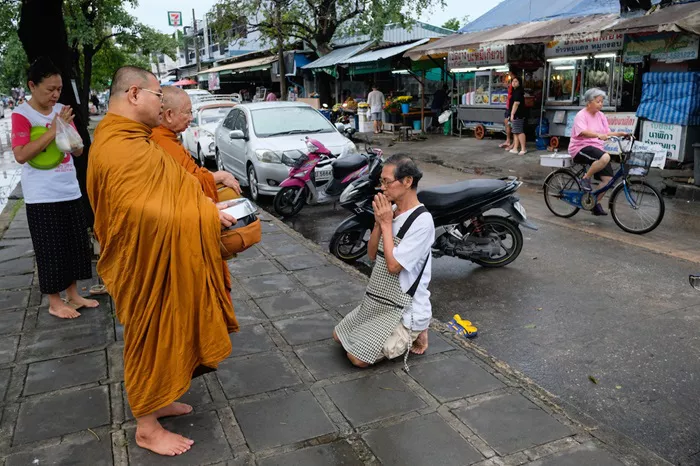Eco-monks are Buddhist monks who combine their spiritual practice with caring for the environment. They live simple lives and focus on protecting nature. Their way of living shows respect for all life forms and the Earth.
In Buddhism, respecting all living beings is important. Eco-monks put this teaching into action by working to protect forests, rivers, and animals. They believe the health of the planet is connected to our own well-being.
The Meaning Behind the Eco-Monk Movement
Buddhism and Nature
Buddhism teaches kindness, compassion, and non-harm to all beings. This naturally extends to how we treat the environment. Eco-monks see nature as part of their spiritual path. They practice mindfulness and awareness, noticing how their actions affect the planet.
Interdependence and Ecology
The idea of interdependence in Buddhism means that everything is connected. Humans, animals, plants, and the Earth all depend on each other. Eco-monks work to protect these connections by living in harmony with nature.
The Lifestyle of Eco-Monks
Simplicity and Minimalism
Eco-monks live simple lives with few possessions. They wear traditional robes like other Buddhist monks but often use natural or recycled materials. This simple lifestyle helps reduce waste and consumption.
Daily Practices
Daily routines of eco-monks include meditation, chanting, and walking mindfully. They also spend time in nature, planting trees, cleaning rivers, or caring for wildlife. These activities support both their spiritual goals and the environment.
Community Living
Many eco-monks live in monasteries or small communities near natural areas. Here, they share resources, grow their own food organically, and avoid using harmful chemicals. Their communal lifestyle lowers environmental impact.
Environmental Impact of Eco-Monks
Conservation Efforts
Eco-monks often lead or support conservation projects. They protect forests by preventing illegal logging and raise awareness about endangered species. Their presence in nature areas often helps keep ecosystems safe.
Education and Awareness
Eco-monks teach people about the importance of protecting nature. They combine Buddhist teachings with modern environmental science to inspire others. Many give talks, write books, or lead retreats focused on ecological mindfulness.
Reducing Carbon Footprint
By living simply, eco-monks produce less waste and consume less energy. Their lifestyle serves as an example for sustainable living. Many encourage using renewable energy, reducing plastic, and living without unnecessary material goods.
Challenges Faced by Eco-Monks
Balancing Tradition and Modernity
Eco-monks sometimes face the challenge of maintaining traditional Buddhist practices while adopting new environmental methods. For example, using technology for education but avoiding its overuse.
Resources and Support
Living a low-impact lifestyle can be difficult in a modern world. Eco-monks often rely on donations and support from followers to sustain their environmental projects and simple lifestyle.
Global Influence
Eco-monks connect with other environmental groups and spiritual leaders. Together, they work to bring greater respect for nature across cultures and religions. This cooperation can lead to a healthier planet for future generations.
How You Can Learn from Eco-Monks
Adopt Mindfulness in Daily Life
Practicing mindfulness like eco-monks helps you become aware of your impact on the environment. Simple acts like reducing waste, saving water, and using less energy can make a big difference.
Support Eco-Friendly Communities
You can support or visit eco-monk communities to learn more about sustainable living. Many offer retreats and workshops open to the public.
Spread Awareness
Share the ideas of eco-monks with friends and family. Encouraging others to respect nature can create a larger positive effect.
Conclusion
By combining Buddhist compassion with environmental action, eco-monks demonstrate a simple yet powerful way of life. They protect the health of the earth through moderation and respect for nature. Eco-monks not only protect the environment, but also inspire each of us to treat nature with more awareness and kindness.
Their lifestyle reminds us that environmental protection is not only a scientific issue, but also a spiritual practice. Learning and drawing on the ideas of eco-monks will help us move towards a more sustainable and harmonious future.

